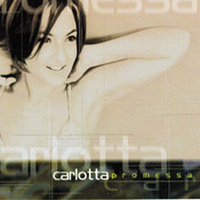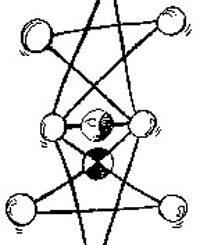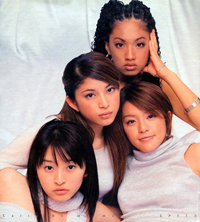 Import Zone
Import Zone
The J-Spot
by Michael McCarthy
The first rule of J-Pop (that’s hip slang for Japanese pop) is, you don’t take J-Pop too seriously. The second rule of J-Pop is, you don’t take J-Pop too seriously. These rules especially apply if you’re an English-speaking bloke like moi who can only understand the choruses. And why can an English-speaking bloke like moi understand the choruses and not the verses? Because, at least in the case of about 85 percent of the songs, the choruses of J-Pop songs are in English. Ditto for most of the actual song titles and artists’ names. Why, I don’t know. Rumor has it that it’s because they’re so in love with McDonald’s and Mickey Mouse in Japan, but I don’t know if that’s even remotely accurate.
A friend of mine who was big on Anime films got me into J-Pop. Many of the top artists record soundtracks (mostly songs, but sometimes even scores) for the big Anime features. In fact, according to my friend, the soundtrack albums are often their most popular releases.
The first group my friend ranted about was Speed, which consists of four young women. So young I doubt they would’ve been offended if I’d called them girls instead of women when their first album (Starting Over– how’s that for irony?) was released. My friend had evidently heard a few of their tunes featured in an anime movie and spent a long time trying to get his sweaty palms on their CDs. Eventually he did and I was subsequently forced to hear them. Although the part of my brain that wouldn’t allow me to listen to the Spice Girls immediately told me to shut it off, the part of me that’s always been a sucker for heavy metal ballads and other things y’all might consider cheese was in love. Some of their songs almost sounded like the ’80s pop that I hated in high school, what with all the synth. But there were guitar solos that sounded like they belonged in rock – or maybe even metal – tunes, and the beats per minute were right up there with Digital Orgasm. Listening to the rapid, furious beats of “All My True Love,” I no longer wondered why a group of cute Japanese gals would call themselves Speed.
Of course, it’s possible that the members of Speed didn’t call themselves Speed. It seems many Japanese pop groups, especially those consisting of young ladies, are manufactured by record companies. The managers and record labels supposedly create the band’s name, image, songs and all that jazz before they even hire the girls. (Probably where the bloke who created the Spice Girls got his idea). But if they’re pretty and they sing, who the hell cares? This is bubble gum pop! I mean, hey, we’d be offended if we found out Tori Amos and Liz Phair were manufactured by their record labels, having long thought of them as credible musicians who write their own stuff and have something to say. But nobody tries to pull the wool over anyone’s eyes with J-Pop acts. In fact, when J-Pop groups break up, it’s announced months ahead of time (can you think of a better way to make sure the farewell tour sells out than to call it the “farewell tour?”).
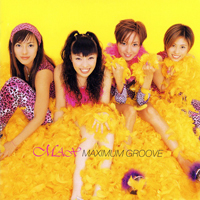 Although Speed is said to be more popular, the J-Pop group I recommend you check out first is Max. Like Speed, they’re a group of cute young teens with irresistible, upbeat songs. I’m hopelessly addicted to their Maximum Groove disc, which sports such songs as “Active For The Love,” “Sunny Holiday,” “Love Desire,” and “Private Crime.” Sounds like the track listing for a new Samantha Fox disc, I know, but what’s a music collection without a few guilty pleasures (and if underproduced indie rock is starting to make you ill, Max is your sweet, over-produced medication)?
Although Speed is said to be more popular, the J-Pop group I recommend you check out first is Max. Like Speed, they’re a group of cute young teens with irresistible, upbeat songs. I’m hopelessly addicted to their Maximum Groove disc, which sports such songs as “Active For The Love,” “Sunny Holiday,” “Love Desire,” and “Private Crime.” Sounds like the track listing for a new Samantha Fox disc, I know, but what’s a music collection without a few guilty pleasures (and if underproduced indie rock is starting to make you ill, Max is your sweet, over-produced medication)?
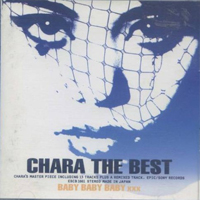 My favorite J-Pop solo artist is Chara. And Chara is actually very credible. She’s got plenty of amusing pop songs, but the lyrics to many of them are more profane than anything Madonna’s ever released. During one tour, inflatable dildos of roughly 30 feet in length were launched out into the audience during a song she sang about liking her boyfriend’s rocket more than his mind! Had I not seen this on video with my own eyes, I wouldn’t have believed it, but it’s true. If you thought Madonna was risque during the Like A Virgin-era, you just might find yourself offended by Chara. But I love the gal.
My favorite J-Pop solo artist is Chara. And Chara is actually very credible. She’s got plenty of amusing pop songs, but the lyrics to many of them are more profane than anything Madonna’s ever released. During one tour, inflatable dildos of roughly 30 feet in length were launched out into the audience during a song she sang about liking her boyfriend’s rocket more than his mind! Had I not seen this on video with my own eyes, I wouldn’t have believed it, but it’s true. If you thought Madonna was risque during the Like A Virgin-era, you just might find yourself offended by Chara. But I love the gal.
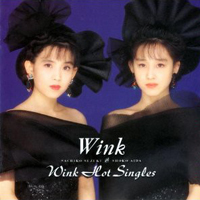 Duos are fairly popular in Japan. Heck, even the brothers Nelson (yes,that Nelson) remain huge there (then again, many ’80s/early ’90s metal gods remain big in Japan, even if they can’t get a proper record deal here). My favorite J-Pop duo is the extremely popular Wink. And, no, they have nothing to do with the techno artist called Wink who’s gaining notoriety here in the States. The J-Pop Wink, two sisters if my information is correct, were the rulers of the Japanese pop charts in the days prior to the J-Pop girl groups. Well, there always were J-Pop girl groups, C&C Girls being a great one from the era of Wink’s peak, but suffice it to say that Wink is actually one of the best-selling pop duos of all time, this without the benefit of a release in North America.
Duos are fairly popular in Japan. Heck, even the brothers Nelson (yes,that Nelson) remain huge there (then again, many ’80s/early ’90s metal gods remain big in Japan, even if they can’t get a proper record deal here). My favorite J-Pop duo is the extremely popular Wink. And, no, they have nothing to do with the techno artist called Wink who’s gaining notoriety here in the States. The J-Pop Wink, two sisters if my information is correct, were the rulers of the Japanese pop charts in the days prior to the J-Pop girl groups. Well, there always were J-Pop girl groups, C&C Girls being a great one from the era of Wink’s peak, but suffice it to say that Wink is actually one of the best-selling pop duos of all time, this without the benefit of a release in North America.
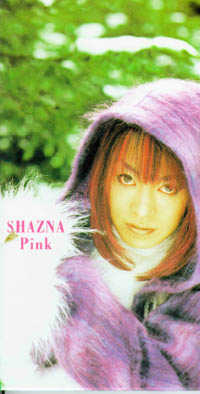 You’re probably wondering why all the artists I’m mentioning are female. The answer is pretty simple: I haven’t found many male J-Pop artists. I’m not saying there aren’t any, but groups like Speed and Max are the money right now. One male artist I’ve discovered who I enjoy is Shazna, whom I thought was a girl at first because he looks and dresses like one.
You’re probably wondering why all the artists I’m mentioning are female. The answer is pretty simple: I haven’t found many male J-Pop artists. I’m not saying there aren’t any, but groups like Speed and Max are the money right now. One male artist I’ve discovered who I enjoy is Shazna, whom I thought was a girl at first because he looks and dresses like one.
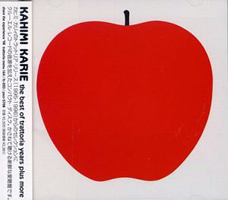 Like plenty of American metal bands, many French language artists who can’t get record deals in France do very well in Japan. Kahimi Karie has released a couple discs here in the States recently, but she was the queen of pop in Japan long before that. Singing in French and English, she released a dozen or so singles and a few full-length albums there. In fact, the self-titled disc she released here on Minty Fresh was originally released in Japan under the title Best Of Trattoria, since it compiled her Trattoria singles. Speaking of singles, it should be noted that most J-Pop artists will release a half-dozen singles before an album. Many of the albums are more like a compilation of singles, rather than albums as we think of them.
Like plenty of American metal bands, many French language artists who can’t get record deals in France do very well in Japan. Kahimi Karie has released a couple discs here in the States recently, but she was the queen of pop in Japan long before that. Singing in French and English, she released a dozen or so singles and a few full-length albums there. In fact, the self-titled disc she released here on Minty Fresh was originally released in Japan under the title Best Of Trattoria, since it compiled her Trattoria singles. Speaking of singles, it should be noted that most J-Pop artists will release a half-dozen singles before an album. Many of the albums are more like a compilation of singles, rather than albums as we think of them.
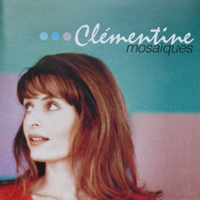 Clementine is another French artist who’s huge in Japan and virtually unknown in France. She sings in French, English, Italian, Portuguese, and Spanish. Probably even others, but those are the languages featured on the five albums I have (unlike Karie, Clementine does release more albums than singles). More interesting than the number of languages Clementine sings in is the number of genres. She’ll release a pop album in January and then a jazz album in June. And the next disc turns out to be old school Latin music. Yup, the lady is that diverse. I first discovered her through her one and only French release, a compilation called Mosa’ques. While there were songs I’d have to call jazz at the end of the disc, most of it was pop with jazz influences. When I next purchased Solita, I was shocked. I was expecting French pop, and most of it was English jazz. But Clementine has a soft, soothing voice that’s just wonderful for nighttime listening when you want to relax. So, I’d play Solita at night as I drifted to sleep and it really grew on me until I started listening to it again in the morning, and eventually the afternoon. I now have another three Clementine discs and plan to get more.
Clementine is another French artist who’s huge in Japan and virtually unknown in France. She sings in French, English, Italian, Portuguese, and Spanish. Probably even others, but those are the languages featured on the five albums I have (unlike Karie, Clementine does release more albums than singles). More interesting than the number of languages Clementine sings in is the number of genres. She’ll release a pop album in January and then a jazz album in June. And the next disc turns out to be old school Latin music. Yup, the lady is that diverse. I first discovered her through her one and only French release, a compilation called Mosa’ques. While there were songs I’d have to call jazz at the end of the disc, most of it was pop with jazz influences. When I next purchased Solita, I was shocked. I was expecting French pop, and most of it was English jazz. But Clementine has a soft, soothing voice that’s just wonderful for nighttime listening when you want to relax. So, I’d play Solita at night as I drifted to sleep and it really grew on me until I started listening to it again in the morning, and eventually the afternoon. I now have another three Clementine discs and plan to get more.
OK, OK, I know what you’re thinking: how nice of me to tell you about this stuff, bragging about my friggen collection, when you have no idea where to get it. So, I’m gonna tell you. Surprisingly, amazon.com is a great place to start. Cdnow.com and Amazon are both offering an increasingly large number of J-Pop albums and even some singles (this stuff is expensive, so look for those sweet deals where you get 10 bucks off a 15 dollar order, etc.). Whatever you can’t find through them, you will likely find from WMI (World Music Imports) at www.wmimusic.com. A Canadian company, I’m often awe-struck by the number of imports they stock (if you want all the various pressings of a certain favorite album from every country around the globe, they can certainly help you). They have more albums and singles by the artists mentioned in this column, not to mention my previous Import Zone columns, than I’ll probably ever be able to afford. Finally, a great source for J-Pop is Sasuga Japanese Bookstore of Cambridge, Massachusetts (www.sasugabooks.com). While the selection on hand at their 7 Upland Road store isn’t quite what I’d call huge, it’s been getting bigger and they stock most of the new releases. And if it’s not on the shelf, they have piles of huge catalogs of stuff they’re happy to special order.

